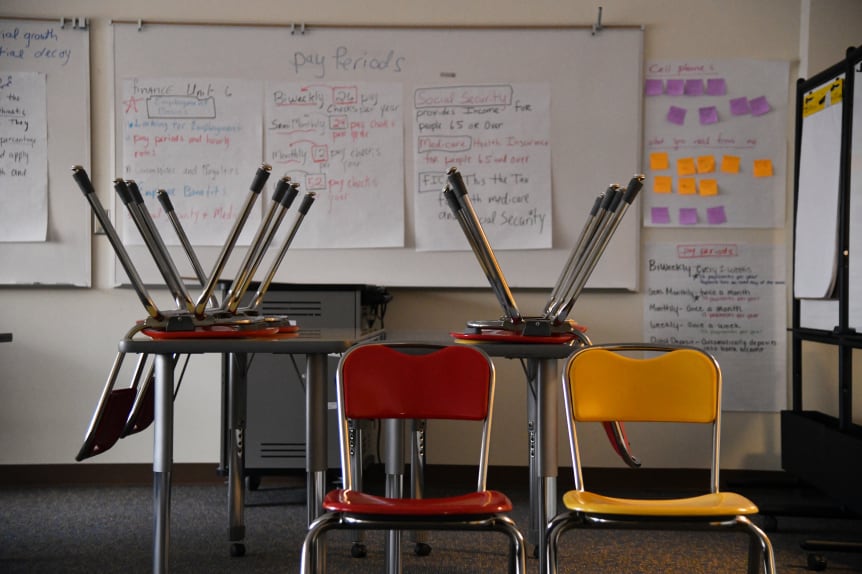About half of Denver students in grades three through eight opted out of state math and literacy tests last spring, far more opt-outs than in normal years.
As Denver Public Schools attempts to recover from a disrupted learning year, the low participation makes it hard to draw firm conclusions from the scores, which were much lower than the last time students took statewide tests in 2019.
Colorado students in grades three, five, and seven took state literacy tests this past spring, while students in grades four, six, and eight took state math tests. The scaled-back testing was a compromise between teachers unions and school districts that wanted the tests canceled completely, and education advocates who wanted all students tested in both subjects.
But parents can opt their children out of the tests, called the Colorado Measures of Academic Success or CMAS. In Denver, only 51% of eligible students took the literacy tests and 46% took the math tests, according to information presented to the school board Monday.
Denver’s participation rate was lower than the statewide average, which ranged from 76% of third graders taking the literacy test to 58% of eighth graders taking the math test. In some schools, teachers and administrators encouraged parents to opt their children out of the test, a notable contrast from other years when schools try to maximize participation.
While statewide participation rates and test scores were released by the state education department earlier this month, district- and school-level results won’t be made public for another week or so. Monday’s school board presentation provides a glimpse at district-level scores in Colorado’s largest district, which served about 90,000 students last year.
In literacy, 36% of the nearly 10,000 Denver students who took the test scored at or above grade-level, the slides show. That’s lower than in 2019, when 43% of students did.
In math, 22% of the approximately 9,000 Denver students who took the test scored at or above grade-level, the slides show. In 2019, 33% of students did.
Denver elementary schools started last year virtually and offered just a few weeks of in-person instruction before sending students home again as COVID cases rose. Schools brought students back in January. Middle school students had even less access to in-person learning.
Denver’s results mirror statewide scores, which showed a bigger drop in math than in literacy. After two school years interrupted by the pandemic, state and Denver officials said that makes sense. Literacy is more constant, while math concepts build from year to year. If a student doesn’t master fourth-grade math, they will likely struggle with fifth-grade math.
“Because of the pandemic, we know there is both unfinished teaching and unfinished learning,” Tamara Acevedo, the district’s deputy superintendent of academics, told the school board. “And in mathematics, that has a much greater impact than what we saw in literacy.”
Denver’s plan to make up for that unfinished teaching involves a concept known as “accelerated learning.” Instead of re-teaching lessons students missed the year before, teachers teach grade-level content but embed mini reviews along the way.
Presented with the test data, Denver school board members acknowledged the academic setbacks caused by the pandemic and the challenges that lie ahead.
Board Vice President Jennifer Bacon used a horticultural analogy.
“If we liken the data to plant growth over time, this is the year when a brick fell on the plant,” Bacon said. “And next year is the year when we move it off and it has to grow again.”







